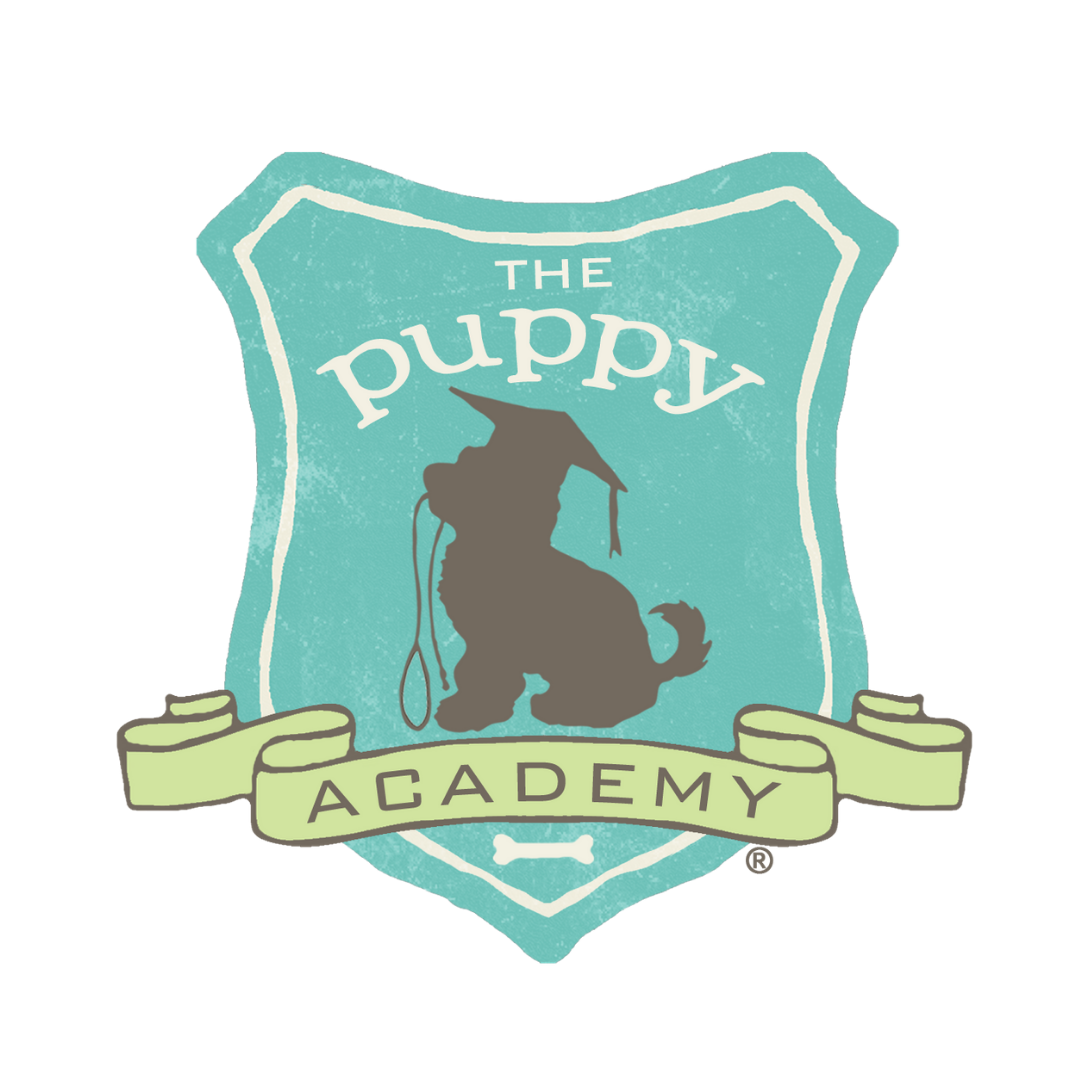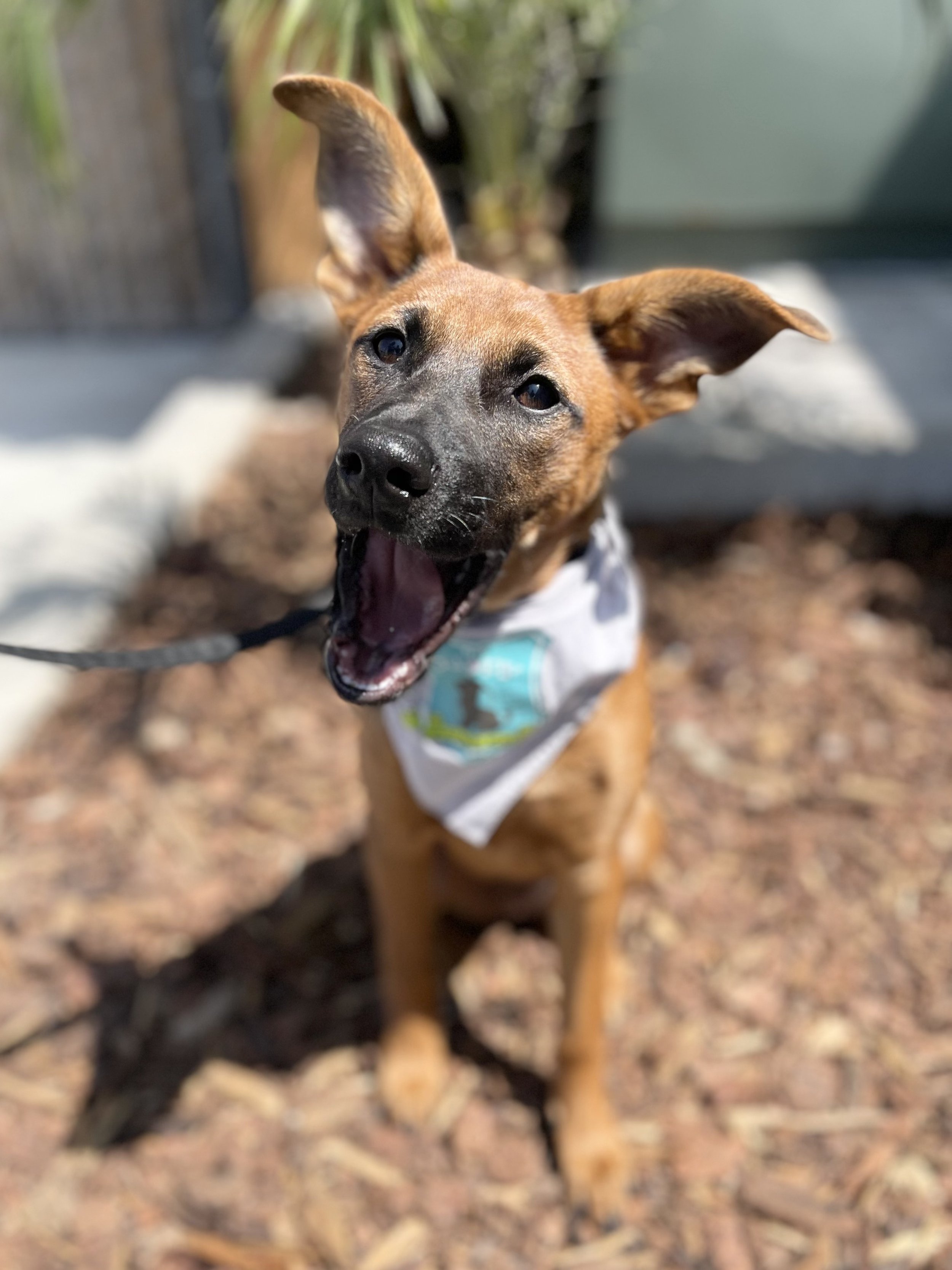Barking is a normal form of communication for dogs. But sometimes it can become excessive and difficult to live with! If you’re experiencing this, then you’ve landed on the right blog. We’ll cover the reasons why puppies bark at what can seem like everything, plus techniques you can use at home to help control excessive barking!
From territorial, alerting, greeting, and reacting to people, other dogs and objects, a pups’ bark has many reasons behind it. There is no way to “stop” a puppy or dog from barking for good, but the goal of this blog is to teach you what different triggers are causing your pup to start their barking so you can prevent it, manage it, and stop it from becoming excessive.
Why Puppies Bark
As we briefly touched on, puppies and dogs alike have a variety of reasons behind why they bark. Here are the most common instances:
Protecting Territory: Some pups bark to protect their territory when other people and dogs outside of their immediate family encroach their area.
Alarm Barking: Alarm barking happens in response to something like a strange noise that catches your pup’s attention.
Attention: Other barking triggers include trying to gain your attention for playtime, food, treats, or just some of your affection!
Excitement: Some puppies are triggered by excitement usually when it comes to greeting new people and other dogs but this is usually friendly and accompanied by a wagging tail and overall relaxed body language.
Boredom & Frustration: If your puppy isn’t getting enough activity to stimulate their mind and keep them physically active throughout the day, the effect can be more barking.
Separation Anxiety: Pups who aren't accustomed to being away out of sight from your, away from you, or alone when you leave the house could be barking due to separation anxiety.
Whatever the cause, there is always something behind your pup’s barking. Before letting yourself become frustrated with your pup’s next barking bout, take a moment to observe them and ask these questions: Are they seeing or hearing something unusual? Did someone stop by? Are you about to leave? What’s different about this situation? Once you narrow in on what the cause could be, you can determine the correct response and take the proper next steps to mitigate their barking!
How to Stop Your Puppy’s Barking
Depending on the cause of your puppy’s barking, these are a few super easy and effective strategies that you can try out!
Introduce Sight Barriers at Home
Many pups will often bark at something that drew their attention outside your window or glass door. Other times, if they are outside, they could bark at a person or another dog on the other side of the fence. In these cases, your pup may be exhibiting territorial and alarm barking at what they are seeing.
Utilizing sight barriers such as a privacy fence, opaque removable plastic window film, or simply closing the blinds and curtains can all help eliminate the barking triggers and help your puppy achieve a calmer state of mind!
Create a Safe Space for Your Puppy at Home
Does your puppy start barking at you whenever you’re in another room or about to leave them alone? Have your neighbors complained of barking while you're away? This barking behavior can be related to separation anxiety and can be helped by making your puppy feel more comfortable and confident in a safe space of their own!
Set up either a dog crate, playpen, or room where you can block out sights and sounds from the outside. Cover their crate with blankets or towels, draw down the blinds and curtains, plus you can use white noise like a fan or TV, for example, to help eliminate noises from the outside and make them feel more secure on their own.
If you haven’t crate trained your puppy, or are unsure of the benefits related to crate training, take a moment to read our crate training blog! for more details!
Provide Your Puppy with Enough Activity
If there’s nothing happening in their environment and your puppy seems to start barking out of nowhere, chances are they could be frustrated or simply bored! In this situation, you can provide them with an activity to keep their brain engaged and help relieve them of that extra energy!
If you want to provide your puppy with exercise, check out our blog “Canine Fitness Awareness: How to Keep Your Puppy Healthy & Active as They Grow!” for more routines!
Chew toys are also a great way to keep your puppy engaged in doing something other than barking. A Kong toy that you can stuff with their favorite food or a treat like peanut butter, will keep your puppy working to get to their reward! But if you plan to give your puppy a chew toy, make sure that you are able to supervise them while they are playing with these toys. As your puppy chews, smaller pieces can break off and they could potentially ingest them. For more fun activities to do at home with your puppy, click here for our Top 10 favs!
Stop Rewarding Their Barking
Has your pup mastered the ability to call you on command? Chances are, when your puppy barks, you come running and give them attention. By doing this, you are actually rewarding their barking behavior!
Instead, if your puppy is demand barking, give them a firm "No" and redirect them to another activity (like practicing a couple of commands or going to “Place” instead) and reward them when they follow through and listen.
Try to reward your puppy with their favorite toy or treat when they become quiet instead. If they continue barking at you, don’t engage and instead try to ignore them or even leave the room until they become quiet. Once they are quiet again, even if it’s just a few seconds pause, only then do you give them attention as a reward. This switch will help your puppy create the association that not barking can lead to them getting something they want!
Enlist the Help of Others
If your puppy barks every time the neighbor walks past or the mail carrier drops off a delivery, you can help curb your puppy’s barking by teaching them that these occurrences are okay!
To do this, you could enlist the help of your neighbor, for example, to offer your pup a treat when they arrive and once your pup is quiet! Doing this can teach your puppy that these instances aren’t scary after all and create a positive association with them!
Puppy Training is Key to Help Manage Barking
Having good structure in place at home by following a daily puppy schedule, plus teaching your pup a few specific training techniques can make managing your pup's barking so much easier, and save you from serious frustration!
Try these activities below out at home, or if you’re ready to end your pup’s barking fits for good, sign up for our Online Puppy School to unlock all our trainers bark-busting secrets now!
Recall or Come: Getting your puppy to come to you when called is a great way to redirect their attention from what they’re barking at, and back to you instead. Say, for example, your puppy is barking at something they saw at the door or on the other side of the fence, calling them to you will remove them from what is triggering their barking. TIP: Having a high-value treat or toy they love, will help you grab their focus more easily!
For help with your puppy’s Recall, check out our blog “Puppy Training 101: How to Get Your Puppy Responding to Come!”
Sit and Stay: If your puppy starts to run up and bark at the door or bark at another dog while walking on the leash, work on some training routines with your puppy using commands they are already good at, like Sit and Stay to keep them engaged and working with you, rather than on what is causing them to bark!
For help teaching your puppy these commands, check out our blog “Puppy Training 101: Starting Your Puppy off with the Basics!
Place: Getting your puppy to go to their “Place” where they can settle down is also effective at controlling their barking. This should be the spot at home like a cot or dog bed where they go to sit or lay down, so sending them to their place is basically like sending your pup to their chill-out zone!
For help teaching your puppy Place command, check out our blog “Puppy Training 101: How to Teach Your Puppy Confidence for the Real World!”
Get your puppy to stop barking at you, at other dogs, for attention, and through the puppy barking phase altogether with The Puppy Academy Online School! Sign up here:
Have a specific question about your puppy’s barking? Ask our trainers every Wednesday at 1pm PT on our Instagram @thepuppyacademy during our Ask A Puppy Trainer Show! All replays are posted afterward, and you can catch up on our last ones on our YouTube channel!
Want our latest puppy tips? Sign up here for the VIP (Very Important Puppy) list where we send weekly puppy training advice for issues you’re dealing with direct to your inbox!
Check out these blogs related to puppy training and more!
Canine Fitness Awareness: How to Keep Your Puppy Active & Healthy as They Grow!
How to Introduce Your New Puppy to Your Dog!
Create a Daily Puppy Schedule!




